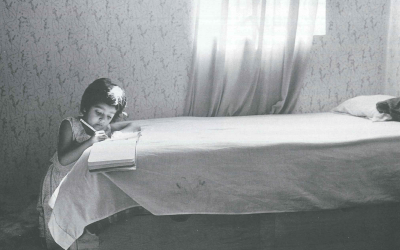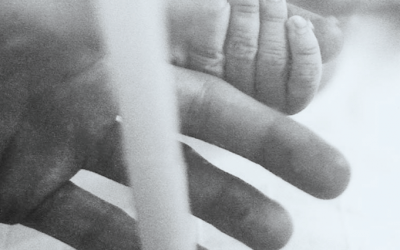Civic Pride
“A passion for planting trees awoke in me,” Don Juan Morales explained to me next to his numerous wood-burning kilns. I had asked him why he had become a member of the association of brick-makers that built a tree nursery in rural La Paz Centro, Nicaragua. My job last summer was interviewing these brick-makers, trying to determine why most had not become members of this tree association, initiated by a non-governmental organization two years ago to begin to reforest the denuded department of León. I learned that all cared about the environment and all realized that their processes of extracting soil and firewood were harmful to the environment. The most significant difference between those who were members and those who were not was a key component of any democracy—civic pride. Through the interviews, I learned that brick-makers with the most civic pride and those most likely to belong to the tree nursery association were also the wealthiest, those with the most invested in Nicaraguan society.
Don Oscar Berrios, the tree nursery association’s president, was an orator of florid speech who exemplified the civic pride of the members of the tree nursery association. He spoke of the need for everyone to contribute and, in fact, had planted thousands of trees on his land. But, in order to “give air, give energy, protect against floods and diseases,” as he once said, he had to have the land and the motivation. He once described himself to me as “the king of this place.” While he was partially joking, he was one of the most successful brick-makers, nearly as successful as Don Juan Morales. If every tree within 100 miles were cut down and he no longer had fuel for brick-making, he would have to reduce his already-meager living standards. He cared about his community because it was providing him a decent living by Nicaraguan standards.
Don Miguel Hernández, on the other hand, would not be much worse off if he had to stop making bricks. He was typical of the poorer brick-makers who have not become members of the tree nursery association. “We’re too poor to do anything,” he told me next to his crumbling hut. While he could not plant trees on his own land, he could have promoted the trees to his friends, donated his labor, or arranged for someone else to grow the trees for him. It was not his poverty itself that prevented his participation. Rather, he had no pride in a society which had afforded him so little and in whose future he had so little invested.
At first, I thought that education, rather than wealth, was the determining factor in becoming a member of the association. However, one of the poorest, but also the most articulate and well-read, of the brick-makers convinced me otherwise. Don Rolfino Soli supported environmental protection, but believed that it was the government’s role. “The government got us into this situation and now it must get us out of it,” he told me. Surely, he recognized that his indebted and corrupt government could do little, so claiming that he has no role to play was a poor excuse. He believed global warming, the hole in the ozone layer, and the lack of oxygen caused by global deforestation may cause the extinction of humans. But he lacked the civic pride in his own country to prompt him to counteract the deforestation he helped cause outside his home.
I believe that the best hope for the environment in Nicaragua, identified as one of the global biodiversity “hotspots” by conservation groups, is turning the Don Solis of Nicaragua into Don Oscars. Don Oscar has civic pride because his democracy has worked for him. A functional democracy with a program of economic development that allows Don Soli to buy a second wood-burning brick kiln is what La Paz Centro needs to foster civic pride and awaken in more brick-makers a passion for reforestation.
Fall 2002
Zachary Liscow, After studying Nicaragua’s economy, history, and politics at Harvard last spring in a seminar culminating with a trip to Nicaragua,’05 volunteered over the summer for Proleña, an environmental NGO, with a DRCLAS internship grant. An Environmental Science and Public Policy concentrator, he is also active in Harvard’s Environmental Action Committee.
Related Articles
Editor’s Letter: Democracy
Ellen Schneider’s description of Sandinista leader Daniel Ortega in her provocative article on Nicaraguan democracy sent me scurrying to my oversized scrapbooks of newspaper articles. I wanted to show her that rather than being perceived as a caudillo
Battro Named to Pontifical Academy
Antonio M. Battro M.D., Ph.D. has been named to The Pontifical Academy of Sciences, the oldest science academy in the world, established by Galileo 400 years ago. Battro, Robert F. Kennedy…
Entre los panales y el poder
Cuando Jacqueline van Rysselberghe fue informada en Noviembre último que ella debería dejar su puesto como alcaldesa de Concepción, una de las ciudades mas grandes e…




